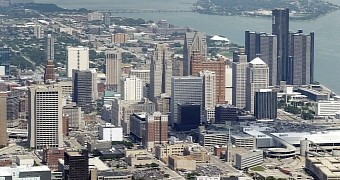Detroit isn’t quite the most prosperous city these days because the recession that hit General Motors, Chrysler, and Ford in 2009 pushed it under a bankruptcy protection process that’s still in place right now.
Speaking during a bankruptcy trial on Monday, Detroit’s chief information officer explained that the information technology system in the city is “atrocious and fundamentally broken,” explaining that more than 1 billion dollars is needed for investments in this sector.
CIO Beth Niblock revealed that 9 out of 10 computers in the city are still running Windows XP right now and sometime they need more than 10 minutes to boot. At the same time, Niblock revealed that city employees send emails that never reach their destination, but systems designed to handle paychecks and tax collection often crash all of a sudden.
Boot time of 10 minutes “if you’re lucky”
“It is fundamentally broken or beyond fundamentally broken,” Niblock explained. “In some cases fundamentally broken would be good. hey're atrocious. Depending on what luck of the draw you have, your desktop can take almost 10 minutes to boot up.”
Windows XP is still powering 23 percent of the desktop computers around the world, but even though it’s nearly 13 years old, there’s no doubt that booting in 10 minutes isn’t possible unless you install tens of applications on a daily basis without cleaning anything.
Of course, the issue could also be related to viruses and apps designed to run at boot, but it’s up to local IT experts to address the issues.
The collapse of the Motor City
Detroit is known worldwide as the Motor City because it’s the home of three of the largest American car manufacturers, namely General Motors, Chrysler and Ford.
All three have been hit by the economic recession in 2009 and with the exception of Ford, which already contracted a state loan in 2006, carmakers were asking for funds from the United States in order to survive the financial crisis.
In the end, both General Motors and Chrysler had to fire thousands of workers, sell or kill brands and close factories, in an attempt to reduce costs and lower the impact of the recession.
In the end, the focus was switched to small cars that were offering increased mileage, similar to models already available in Europe.
Detroit, on the other hand, was severely hit by the layoffs that car manufacturers around, with thousands of people moving to new cities looking for jobs and a better life. At this point, authorities are still trying to bring the city on the floating time, but warn that all loans must be spent carefully over the next 10 years.

 14 DAY TRIAL //
14 DAY TRIAL //